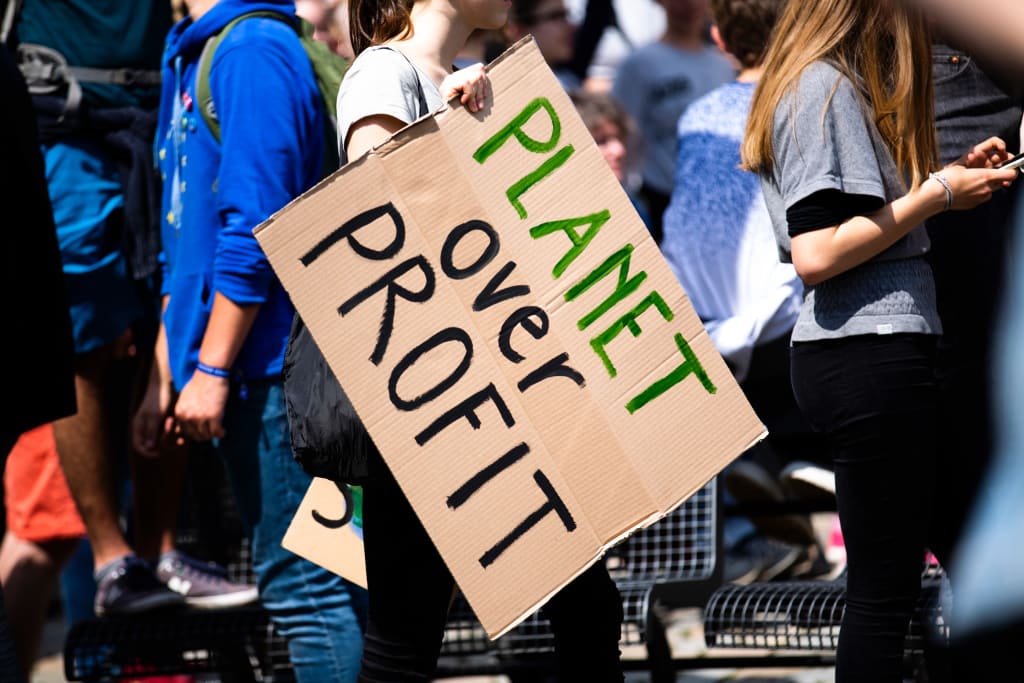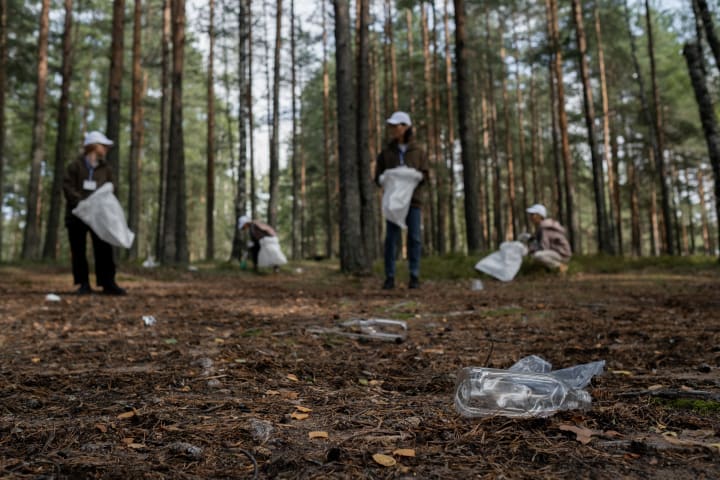From Greenhouse to Green Future: Confronting the Realities of Climate Change
A Call to Future Generations

Understanding the Global Climate Crisis
In recent decades, our planet has experienced a remarkable transformation. The Earth's climate, a complex system governed by a delicate balance of atmospheric components, has been significantly altered by human activities. This phenomenon, commonly known as climate change, poses unprecedented challenges to the environment, ecosystems, and the future of humanity.
Causes and Consequences
Climate change is primarily driven by the emission of greenhouse gases, such as carbon dioxide (CO2), methane (CH4), and nitrous oxide (N2O), into the atmosphere. These gases trap heat from the sun and cause the planet's average temperature to rise—a process commonly referred to as the greenhouse effect. The consequences of this warming trend are manifold and far-reaching.
Environmental Impacts
Rising global temperatures have triggered a cascade of environmental changes. Glaciers are melting, leading to rising sea levels and threatening coastal communities. Extreme weather events, including hurricanes, droughts, and heatwaves, are becoming more frequent and intense, disrupting ecosystems and human livelihoods. The delicate balance of ecosystems is being upended, leading to shifts in habitats and endangering countless plant and animal species.
Human Health and Well-being
Climate change also takes a toll on human health. As temperatures rise, the incidence of heat-related illnesses and diseases like malaria and dengue fever increases. Air quality deteriorates due to higher concentrations of pollutants, causing respiratory issues. Disruptions in food and water supplies due to changing weather patterns can lead to malnutrition and food insecurity, particularly in vulnerable communities.
Mitigation Strategies
Mitigating climate change requires global cooperation and concerted efforts across sectors. A transition to renewable energy sources, such as solar, wind, and hydroelectric power, is a crucial step towards reducing greenhouse gas emissions. Improving energy efficiency in industries, transportation, and buildings can significantly curb our carbon footprint. Additionally, reforestation and sustainable land management practices can act as carbon sinks, absorbing CO2 from the atmosphere.
Adaptation Measures
While mitigation efforts are essential, the impacts of climate change are already evident. Thus, adaptation strategies are equally vital. Coastal regions must implement measures to protect against rising sea levels, such as building sea walls and relocating vulnerable communities. Farmers should adopt climate-resilient agricultural practices to ensure food security. Urban planning that accounts for extreme weather events can help reduce the risks posed by floods and storms.

The Paris Agreement
Adopted in 2015, the Paris Agreement stands as a landmark effort to combat climate change. The agreement brings together nations in their commitment to limit global warming to well below 2 degrees Celsius above pre-industrial levels, with efforts to limit it to 1.5 degrees Celsius. Countries pledge to reduce emissions, enhance adaptation efforts, and provide financial support to developing nations.
Climate Action and Technology
Advancements in technology play a crucial role in addressing climate change. Electric vehicles, sustainable agriculture techniques, and carbon capture and storage technologies are just a few examples of innovations that can contribute to reducing emissions. Investing in research and development of cleaner energy sources and sustainable solutions is vital for our collective future.
Changing Consumer Behavior
Individuals can make a difference by making sustainable choices in their daily lives. By reducing energy consumption, using public transportation, consuming locally sourced foods, and minimizing waste, individuals can collectively contribute to reducing carbon emissions.
Raising Awareness and Advocacy
Raising awareness about the urgency of climate change is vital. By educating others, participating in community initiatives, and advocating for policies that prioritize environmental protection, individuals can create a groundswell of support for meaningful action.
Education and Empowerment
Educating young people about climate change empowers them to be informed advocates for environmental protection. Schools and educational institutions play a pivotal role in fostering a sense of responsibility towards the planet.

Long-Term Vision and Commitment
As stewards of the Earth, we must commit to leaving a positive legacy for future generations. By adopting sustainable practices, supporting green technologies, and holding leaders accountable, we can collectively shape a future that prioritizes the health of our planet.
Conclusion
Climate change represents an urgent and complex challenge that demands our immediate attention. The interplay of environmental, social, and economic factors necessitates a comprehensive and collaborative response. Through mitigation, adaptation, global cooperation, technological innovation, individual responsibility, and a commitment to future generations, we can pave the way for a sustainable and resilient world. The time to act is now, as our choices today will determine the fate of our planet for generations to come.
About the Creator
Tayyab Ali
Greetings, I am Ali. I love to paints emotions and ideas onto the canvas of words. My writing is a journey, where each sentence invites you to explore new landscapes of thought, evoking feelings and sparking reflections.






Comments (1)
Good one, this is lovely and interesting